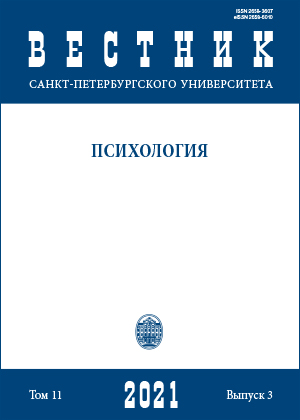The meaning-forming experience of country life for former city dwellers: The existential context
DOI:
https://doi.org/10.21638/spbu16.2021.305Abstract
The study presented in the current article is related to the phenomenon of city dwellers moving to the country. It refers to the existential context of this phenomenon as the least studied and at the same time having significant heuristic potential for psychological science, its purpose is to identify the unique semantic structure of country lifeworld, as well as to investigate the stability and variability of this structure over time. Country life is considered as a special environment that contributes to the acquisition of personal meaning of life, the solution of existential issues of former city dwellers. The study was conducted on the material of country residents’ notes in social networks (87 text fragments) and literary texts (176 fragments). To analyze the data, thematic analysis and qualitative content analysis were used. The themes associated with the description of personally significant experiences of country residents were identified and described: waiting for being, dialogue with the surrounding world, labor and lifestyle, contemplation and peace, co-existence, nostalgia, being yourself, formation and kindheartedness. The final stage of the study was aimed at comparing the results of the analysis of texts of past centuries and texts of contemporaries, an additional analysis of the identified trends and variations in the key semantic themes of the country lifeworld. The results show the stability of the structure of the country lifeworld in historical terms and the special constitutive role of nostalgic experience.
Keywords:
country lifeworld, existential context, experiencing, nostalgia, phenomenological approach, thematic analysis, historical and psychological method
Downloads
References
References
Busygina N.P. (2009). Scientific prospective of case study methodology. Konsul’tativnaia psikhologiia i psikhoterapiia, 17 (1), 5–29. (In Russian)
Downloads
Published
How to Cite
Issue
Section
License
Articles of "Vestnik of Saint Petersburg University. Psychology" are open access distributed under the terms of the License Agreement with Saint Petersburg State University, which permits to the authors unrestricted distribution and self-archiving free of charge.




